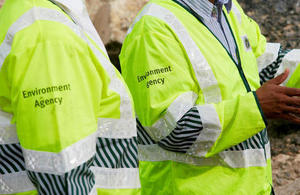Press release
The Environment Agency has granted a permit to place fish barriers across the entrances to Hoveton Great Broad as part of a restoration project.

A public consultation took place earlier this year to consider an application by Natural England for a flood risk activity permit. The permit is required to install the permeable fish barriers.
This was followed by a minded to consultation, where the Environment Agency published its intention to grant the permit and asked the public for additional comments.
The Natural England led project aims to restore clear water conditions to Hoveton Great Broad and Hudson’s Bay by using natural restoration techniques.
All consultation responses were reviewed and after careful consideration of all the evidence and views submitted, the Environment Agency decided to grant the permit.
An Environment Agency spokesperson said:
We have looked at all the evidence and views provided and come to the conclusion to grant the permit.
Once the project is finished, fish will be allowed back in the restored broad which will provide better habitat for a wider range of species.
We will continue to work with Natural England and anglers to monitor any impact on the wider broadland fishery including surveying once the barriers are installed.
For the Broad to return to clear water, the amount of algae needs to be reduced. The project proposes to remove the majority of fish from the broad, which will allow water fleas to thrive. They will then feed on the algae, thereby cleaning the water. This is a well-recognised form of lake restoration called biomanipulation.
The barriers will be in place for up to 10 years, preventing the fish from entering the Broad while the ecology recovers.
This is a resubmitted application from Natural England. The original decision in July 2020 was withdrawn due to a procedural issue.
Published 14 October 2021
Follow this news feed: HM Government





